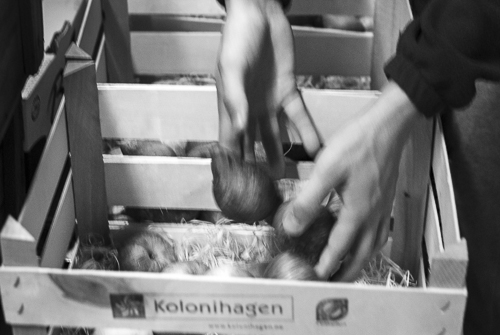Kolonihagen abonnement delivers organic food to consumers, meaning both companies and private households, inside and outside of Oslo.
If you want to know more, you will find lots of information on here. Boxes filled with fruit, vegetables, bread and lots of other delicious stuff can be found in all of them. If you are going away for some time, you can easily stop the subscription for as long as you want.
Besides using organic food, local producers are used as far as possible. This means that the customers of Kolonihagen abonnement are supporting local and organic farms in addition to receiving excellent agricultural products.
Since the Norwegian Ministry of Agiculture and Food wants an organic share of the total agricultural produce increase to 15% within 2020, all contributions are welcome. Buying tests have shown that fruit and vegs from Kolonihagen are not more expensive than well-assorted food stores in Oslo.
Maybe the canteen at the Ministry of Agiculture and Food could start buying organic food from Kolonihagen? How much of the food served in the canteen of the Ministry is organic? I sent them an email in October, and I’m still waiting for a reply. I guess the late or never-arriving reply indicates that the share is quite low.
Organic food in Norway is still marginal and only for specially interested citizens. The share is so low that the government often includes agricultural areas which are being converted to growing organic produce. The numbers are 4.7% organic produce in 2009, and 5.6% including the aforementioned areas. Looking at our neighbouring country Denmark which has set a high priority to growing organic food, quite impressive results have been obtained. For instance, canteens at schools, hospitals and homes for the elderly in Copenhagen, have a share of 70% organic food, and they are aiming for 90% organic within 2015.
For further information: København Mathus is responsible for the practical execution of including organic food in public canteens in Copenhagen.

